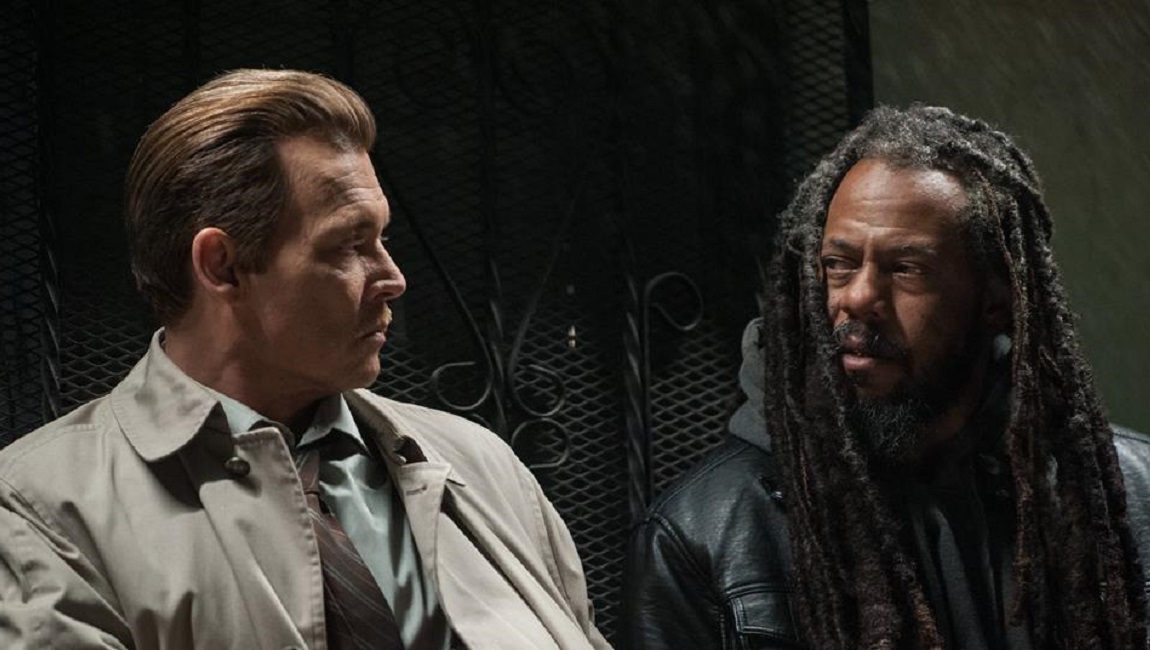City of Lies is deeply trite in its messaging, but given its prolonged stay on the shelf, isn’t as bad as you might expect.
Arriving nearly three years after its intended release date due to star Johnny Depp’s legal woes and a bankrupt distributor, director Brad Furman’s police procedural City of Lies finally makes its way to theaters with little to no fanfare, befitting a film that feels like nothing more than an extended Inside Edition segment. Based on the book LAbyrinth by investigative journalist Randall Sullivan, City of Lies follows the theory posited by former LAPD homicide detective Russell Poole that members of his police department were partially responsible for the murders of rap icons Tupac Shakur and Christopher Wallace, a.k.a. the Notorious B.I.G., a.k.a. Biggie Smalls. The evidence as presented is culled from numerous interviews between Poole and Sullivan, who here has been Hollywood-ized into a Black Peabody-award-winning journalist hilariously named Jack Jackson (Forest Whitaker). Jackson is desperately trying to regain his professional integrity after erroneously reporting that Wallace was responsible for the death of Shakur, a plot detail which seems like a whole lot of heavy lifting from screenwriter Christian Contreras merely to establish that such a well-known theory is complete bullshit. But City of Lies is not a film interested in subtlety, and so instead of being content to tell a story with issues of race woven into its DNA, it opts to add other layers of heavy-handedness to really drive the point home. Exhibit B: at one point, after a disastrous courtroom verdict, Depp looks at a statue of Lady Liberty while tears slowly fill his eyes, dramatic music swelling — it’s that kind of movie.
Yet, much like a particularly juicy episode of Dateline, the film still manages to be a compelling enough watch thanks to Furman’s slick direction — honed on such high-gloss thrillers as The Lincoln Lawyer and Runner Runner — and a cast of talented actors, including Shea Whigham, Toby Huss, Xander Berkeley, Peter Greene, and Michael Paré, only too willing to sink their teeth into any clichéd line that comes their way. It’s Depp, though, who proves the real surprise, delivering his most subdued performance in years, ironic considering the sub-Columbo shenanigans happening all around him. Unencumbered by stupid hats and outsized accents, Depp brings legitimate emotional heft to a decidedly two-dimensional role, imbuing Poole with a mix of regret and righteous indignation at a corrupt system to which he once dedicated his life. City of Lies inadvertently takes on greater significance in today’s climate, where the actions of police officers across the country have been placed under a microscope in response to the heinous crimes perpetrated by many of their number. Perhaps that’s why the unsolved murders of Wallace and Shakur still hold such a fascination: justice may seem like a farce in 2021, but it remains a dream worth savoring, giving hope for a greater tomorrow. As City of Lies painstakingly articulates, the truth may not always out, but neither should pursuit of it cease. It’s a deeply trite message, to be sure, but in our current world of falsehood, perhaps not a bad one to rehash.







